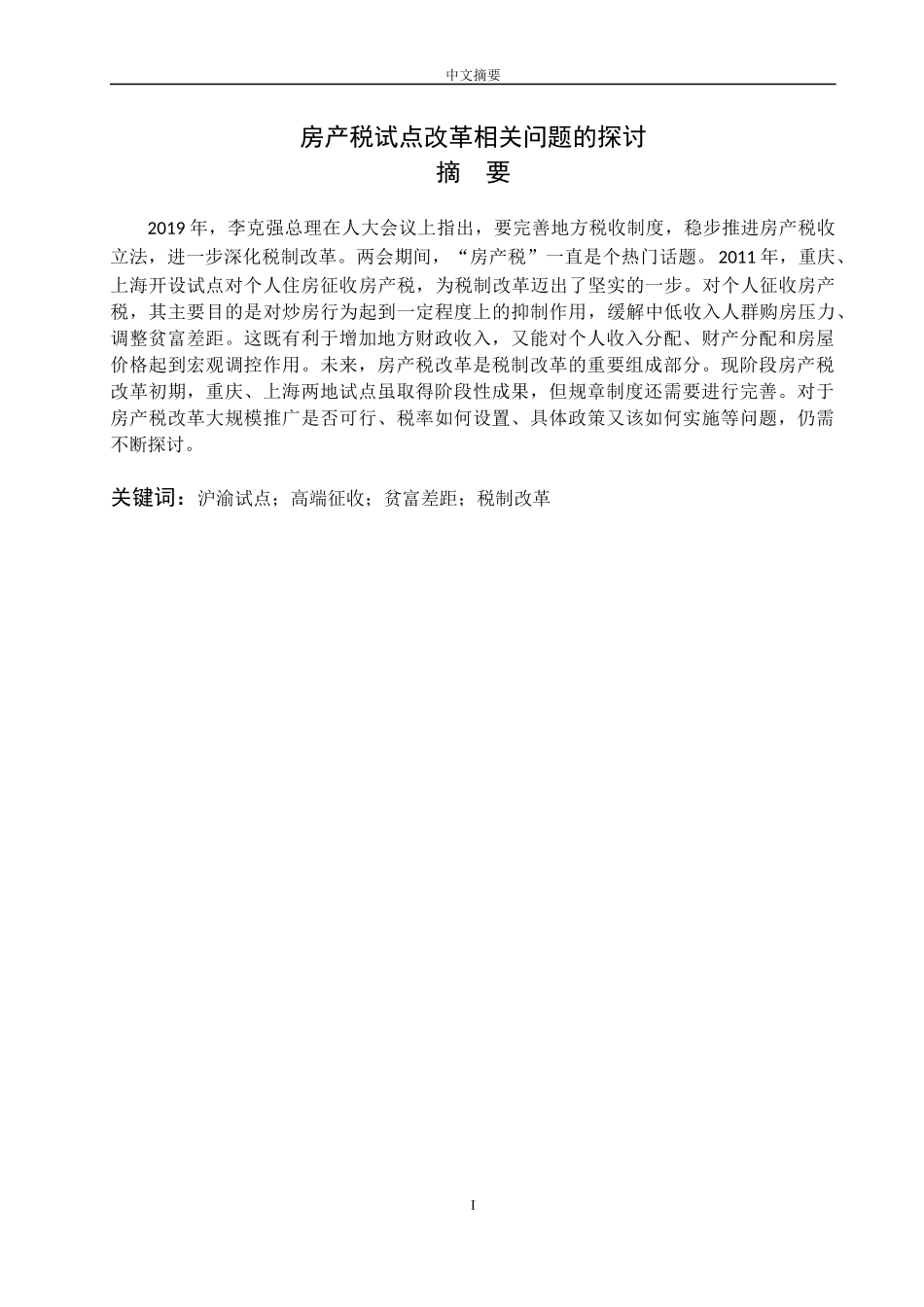中文摘要房产税试点改革相关问题的探讨摘 要2019 年,李克强总理在人大会议上指出,要完善地方税收制度,稳步推进房产税收立法,进一步深化税制改革。两会期间,“房产税”一直是个热门话题。2011 年,重庆、上海开设试点对个人住房征收房产税,为税制改革迈出了坚实的一步。对个人征收房产税,其主要目的是对炒房行为起到一定程度上的抑制作用,缓解中低收入人群购房压力、调整贫富差距。这既有利于增加地方财政收入,又能对个人收入分配、财产分配和房屋价格起到宏观调控作用。未来,房产税改革是税制改革的重要组成部分。现阶段房产税改革初期,重庆、上海两地试点虽取得阶段性成果,但规章制度还需要进行完善。对于房产税改革大规模推广是否可行、税率如何设置、具体政策又该如何实施等问题,仍需不断探讨。关键词:沪渝试点;高端征收;贫富差距;税制改革IABSTRACTABSTRACTIIIABSTRACTDISCUSSION ON THE REFORM OF REAL ESTATE TAX PILOTABSTRACTIn 2019, Premier Li Keqiang pointed out at the National People's Congress that it is necessary to improve the local tax system, steadily promote the real estate tax legislation, and further deepen the tax system reform. During the two sessions, "real estate tax" has been a hot topic. In 2011, Chongqing and Shanghai set up pilot projects to levy real estate tax on individual housing, which has taken a solid step forward in tax system reform. The main purpose of levying real estate tax on individuals is to restrain the behavior of real estate speculation to a certain extent, alleviate the pressure of low-income people to buy houses and adjust the gap between the rich and the poor. This not only helps to increase local fiscal revenue, but also plays a macro-control role in personal income distribution, property distribution and house price. In the future, the real estate tax reform is an important part of the tax system reform. In the early stage of the reform of real estate tax, although the pilot projects ...












